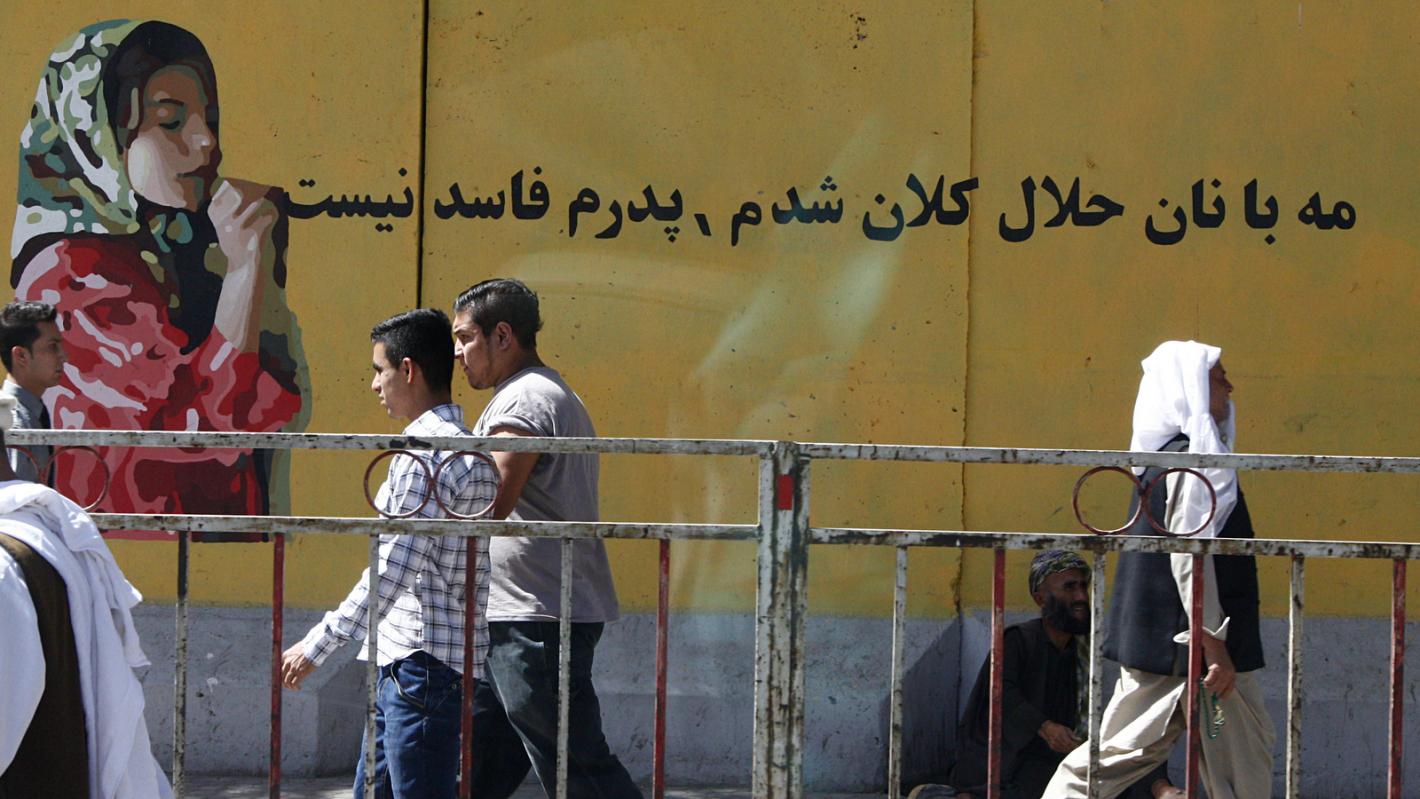JALALABAD - Following a series of UN-backed events earlier this year, several communities in eastern Afghanistan are leading initiatives to address corruption in one of the country’s most restive eastern provinces.
Earlier in 2017, the Jalalabad regional office of the UN Assistance Mission in Afghanistan (UNAMA) organized a series of public events, along with radio and television programmes, to raise awareness about Nangarhar initiatives aimed at increasing transparency and improving governance in the eastern province.
“Any illegal action that takes place for personal interest or benefit is corruption,” said Mohammad Asif, an official working for the High Office of Oversight on Anti-Corruption (HOOAC), during a UN-backed television debate that aired in April.
During the debate, Habiba Kaker, a member of Nangarhar’s provincial council, made a commitment to work shoulder-to-shoulder with HOOAC. Kaker said at the time that she would urge Nangarhar residents and civil society organizations to take action.
“If we stand up against nepotism and relation-based recruitment, we will be able to combat corruption in the government,” she said in the debate.
In a recent follow-up interview with the United Nations, Ms Kaker said the government’s prosecution of employees for corruption is a good example of the effectiveness of community interest in fighting corruption in the province.
“As I had pledged in April, I am in regular contact with HOOAC to keep the fight against corruption moving forward,” Ms Kaker said.
Independent research indicates that Afghanistan is one of the most corrupt countries in the world, affecting every segment of society. A 2017 UNAMA report, titled ‘Afghanistan’s Fight Against Corruption: The Other Battlefield,’ found that Afghan authorities have made progress in this area, but indicated that enormous challenges remain.
For his part, Mr Asif recently told the United Nations that there has been surge in community interest in fighting corruption across the eastern region, with members of the public now directly reporting suspected cases, some leading to arrests.
The fight against corruption has not been limited to those with immediate access to anti-corruption officials. Recently, several youth coalitions have formed in Jalalabad to work directly with their communities on corruption.
As these and other initiatives are taking place to move forward in fighting corruption, much more remains to be done, both Kaker and Asif concede. They contend that corruption remains one of the most significant challenges Afghanistan is facing.
In launching UNAMA’s corruption report on 25 April this year, Tadamichi Yamamoto, the UN Secretary-General’s Special Representative for Afghanistan, said corruption must be addressed and eliminated for the sake of the country’s future.
The report makes several recommendations, recognizing that the government’s ongoing anti-corruption efforts have yet to impact the lives of most Afghans, and concludes that, notwithstanding the many legal and policy reforms that have been undertaken, corruption remains a substantial obstacle to Afghanistan’s long-term peace and prosperity.






